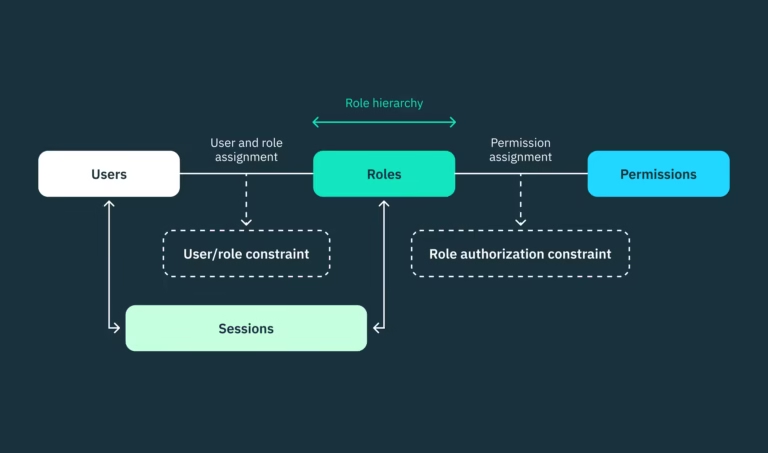
“Curious about the top-paying jobs of 2024? With technology evolving and industries shifting, high-paying careers are constantly changing. Whether you’re planning your career path or looking for a new direction, we’ve got the inside scoop on the 10 highest-paid jobs in 2024! Let’s dive in.”
Introduction to High-Paying Careers
In today’s competitive job market, the pursuit of high-paying careers is a significant consideration for many individuals. As various industries continue to evolve, the importance of salary in career choices becomes increasingly evident. High-paying jobs not only provide financial stability but also often come with greater job satisfaction, opportunities for advancement, and a higher standard of living.
As we look at the economic landscape of 2024, certain sectors are witnessing considerable growth, thus leading to an increase in high-paying positions. The rapidly advancing technology sector, for instance, remains at the forefront of this trend, with roles in software development, data science, and artificial intelligence commanding substantial salaries. Similarly, healthcare continues to thrive, offering lucrative positions for professionals ranging from physicians and surgeons to specialized nurses and healthcare administrators.
Despite geographical disparities and fluctuating market demands, several overarching economic factors contribute to the salary trends observed in high-paying careers. First, the ongoing demand for skilled labor in specific industries drives competition among employers, often resulting in increased compensation packages. Furthermore, the specialized nature of certain roles necessitates a higher level of education or training, making these positions not only challenging but also more rewarding financially.
As we navigate the landscape of 2024, understanding the essential skills required for these high-paying roles is critical. Employers increasingly seek candidates who possess a diverse skill set, blending technical expertise with strong interpersonal capabilities. Adaptability, critical thinking, and continuous learning remain paramount, as they enable professionals to thrive in a rapidly changing environment. With this foundation, we can now explore the top high-paying jobs that dominate 2024, highlighting the positions that are leading the way in the current economic climate.
Methodology for Ranking the Jobs
The determination of the highest-paid jobs in 2024 relies on a comprehensive methodology that integrates various data sources and analytical techniques. Primarily, industry reports and salary surveys serve as the bedrock for evaluating compensation trends across diverse professions. These reports are compiled from reputable organizations, including governmental labor bureaus and industry-specific associations, ensuring the accuracy and reliability of the data presented.
In addition to salary surveys, employment statistics play a crucial role in understanding the current job market landscape. These statistics encompass factors such as job openings, hiring trends, and unemployment rates within specific sectors. By correlating these data points, we can ascertain which occupations exhibit the highest demand and wage potential, thus impacting overall earning capacity.
Geographical variations in salaries significantly influence rankings as well. Different regions may offer varying compensation packages for similar roles due to cost of living adjustments and local demand for particular skills. For this reason, our methodology accounts for these geographical disparities, providing a more nuanced view of salary structures across the nation and beyond.
Furthermore, the correlation between job duties and compensation is evaluated to ensure a comprehensive understanding of what drives high pay in certain fields. Responsibilities typically linked to higher salaries often require specialized skills, advanced degrees, or considerable experience. By examining how these aspects interplay, we can provide a detailed picture of the factors contributing to remuneration trends.
By synthesizing data from multiple sources and considering elements like demand, geographical differences, and job responsibilities, our methodology aims to present a clear and accurate representation of the highest-paid jobs for 2024, painting a picture that helps job seekers and career professionals make informed decisions about their career paths.
#10: Cloud Architect
In today’s fast-paced digital world, cloud computing has become an essential part of business operations. As organizations shift from traditional on-premise infrastructures to cloud-based solutions, the demand for Cloud Architects has skyrocketed. These professionals are responsible for designing and managing cloud environments that ensure scalability, security, and efficiency.
What is a Cloud Architect?
A Cloud Architect is a technical expert responsible for overseeing an organization’s cloud computing strategy. This includes everything from cloud application design and cloud management to monitoring and data storage. A Cloud Architect works closely with IT teams to ensure that cloud infrastructures are properly aligned with business goals, while also providing a safe and efficient environment for applications and data.
Key Responsibilities of a Cloud Architect
- Cloud Architecture Design
- Technology Stack Management
- Scalability and Performance Optimization
- Security & Compliance
- Collaboration
- Cost Management
- Disaster Recovery Planning
Cloud Architect Salary
The salary of a Cloud Architect can vary based on location, experience, skills, and the size of the organization. Here’s an overview:

1. Entry-Level Cloud Architect Salary:
- United States: $80,000 – $110,000 per year
- India: ₹8,00,000 – ₹12,00,000 per year
- UK: £50,000 – £70,000 per year
- Canada: CAD $80,000 – CAD $100,000 per year
2. Mid-Level Cloud Architect Salary:
- United States: $120,000 – $150,000 per year
- India: ₹15,00,000 – ₹25,00,000 per year
- UK: £70,000 – £90,000 per year
- Canada: CAD $100,000 – CAD $130,000 per year
3. Senior-Level Cloud Architect Salary:
- United States: $160,000 – $200,000+ per year
- India: ₹30,00,000+ per year
- UK: £90,000 – £120,000 per year
- Canada: CAD $130,000 – CAD $160,000+ per year
Factors Affecting Cloud Architect Salary:
- Experience: More years of experience result in higher salaries.
- Certification: Cloud certifications (e.g., AWS Certified Solutions Architect, Microsoft Certified: Azure Solutions Architect) significantly boost salary prospects.
- Location: Salaries vary greatly depending on the country and region. Major cities and tech hubs often offer higher salaries.
- Industry: Certain industries like finance, healthcare, and technology pay more for cloud architecture roles.
- Skill Set: Expertise in multiple cloud platforms, advanced networking, or cybersecurity can command premium salaries.
#9: Marketing Director
A Marketing Director is a senior-level professional responsible for overseeing and guiding an organization’s marketing strategy. They play a crucial role in shaping the brand image, increasing market share, and driving revenue growth. Marketing Directors typically work in close collaboration with other departments, including sales, product development, and public relations, to ensure alignment between marketing efforts and business objectives.
Key Responsibilities:
- Developing Marketing Strategy
- Campaign Management
- Team Leadership
- Budgeting and Resource Allocation
- Brand Management
- Customer Insights and Data Analysis
- Collaboration with Sales and Product Teams
Marketing Director Salary Overview
Marketing Director salaries can vary widely depending on factors such as industry, company size, location, and experience.
Average Salary in the United States:
- Base Salary Range: $90,000 – $200,000 per year
- Median Salary: Around $140,000 per year
Salary Breakdown by Industry:
- Technology/Software: $150,000 – $220,000
- Retail/Consumer Goods: $120,000 – $180,000
- Healthcare/Pharmaceuticals: $130,000 – $190,000
- Finance/Banking: $140,000 – $210,000
Bonuses and Other Compensation:
- Many Marketing Directors are eligible for performance bonuses, profit-sharing, and stock options.
- Annual bonuses can range from 10-25% of base salary, depending on company performance and individual achievements.
Salary by Location:
- New York, NY: $150,000 – $230,000
- San Francisco, CA: $160,000 – $240,000
- Austin, TX: $130,000 – $200,000
- Chicago, IL: $120,000 – $190,000
Factors Affecting Salary:
- Experience Level: Directors with more experience or those in executive roles (VP of Marketing) tend to command higher salaries.
- Company Size: Large corporations often offer higher salaries compared to small to mid-sized companies.
- Industry: High-growth industries like technology and pharmaceuticals tend to pay more than traditional sectors like retail.
#8: Artificial Intelligence (AI) Engineer
An AI Engineer is a professional responsible for designing, developing, and implementing artificial intelligence systems and solutions that allow machines to perform tasks that typically require human intelligence, such as decision-making, speech recognition, and language translation. AI Engineers work on creating algorithms, models, and systems that can simulate human thought processes and automate tasks through machine learning (ML), deep learning, natural language processing (NLP), and computer vision.
Key Responsibilities:
- AI Model Development
- Data Processing and Analysis
- Algorithm Development
- AI Solution Deployment
- Performance Monitoring
- Research and Innovation
- Collaboration with Cross-Functional Teams
Artificial Intelligence (AI) Engineer Salary Overview
AI Engineer salaries can vary widely depending on experience, location, industry, and company size. The field of AI engineering is lucrative, given the high demand and relatively low supply of qualified professionals.
Average Salary in the United States:
- Base Salary Range: $95,000 – $180,000 per year
- Median Salary: Around $130,000 per year
Salary Breakdown by Industry:
- Technology (AI/ML Companies): $120,000 – $200,000
- Healthcare: $110,000 – $180,000
- Finance: $120,000 – $190,000
- Automotive (AI for Autonomous Vehicles): $130,000 – $210,000
- Retail and E-commerce: $100,000 – $170,000
Bonuses and Other Compensation:
- Many AI Engineers receive performance bonuses, stock options, and other incentives based on their contributions to AI projects.
- Annual bonuses can range from 10-20% of the base salary, depending on company success and individual performance.
Salary by Location:
- Silicon Valley, CA: $140,000 – $220,000
- New York, NY: $130,000 – $210,000
- Austin, TX: $110,000 – $180,000
- Seattle, WA: $120,000 – $200,000
- Boston, MA: $115,000 – $190,000
Factors Affecting Salary:
- Experience Level: Senior AI engineers and those with advanced degrees or PhDs generally command higher salaries.
- Industry: High-demand sectors like autonomous vehicles, healthcare, and finance tend to offer higher pay for AI professionals.
- Company Size: Larger corporations, especially in tech, finance, and healthcare, often pay more than smaller startups.
- Skill Set: Engineers with advanced skills in deep learning, neural networks, NLP, or computer vision are highly sought after and earn more.
#7: Data Scientist
A Data Scientist is a professional who collects, analyzes, and interprets large volumes of data to help businesses make data-driven decisions. They apply advanced analytical techniques, such as machine learning (ML), artificial intelligence (AI), statistical modeling, and predictive analytics, to extract meaningful insights and trends from complex data sets. Data scientists work in various industries, including finance, healthcare, retail, and technology, and are critical in transforming raw data into actionable business insights.
Key Responsibilities:
- Data Collection and Preprocessing
- Data Analysis and Interpretation
- Model Development
- Data Visualization
- Collaboration with Teams
- Big Data Management
- Continuous Learning and Research
Data Scientist Salary Overview

Data Scientist salaries are among the highest in the tech industry due to the increasing demand for professionals skilled in analyzing and interpreting complex data sets. Salaries can vary based on experience, location, industry, and company size.
Average Salary in the United States:
- Base Salary Range: $90,000 – $150,000 per year
- Median Salary: Around $120,000 per year
Salary Breakdown by Industry:
- Technology/Software: $110,000 – $160,000
- Healthcare/Pharmaceuticals: $100,000 – $150,000
- Finance/Banking: $120,000 – $170,000
- Retail and E-commerce: $90,000 – $140,000
- Government and Defense: $95,000 – $140,000
Bonuses and Other Compensation:
- Data scientists often receive performance bonuses, stock options, or equity, especially in tech startups and large corporations.
- Annual bonuses can range from 5-20% of the base salary, depending on the company and individual performance.
Salary by Location:
- Silicon Valley, CA: $120,000 – $180,000
- New York, NY: $110,000 – $170,000
- Austin, TX: $100,000 – $150,000
- Chicago, IL: $95,000 – $145,000
- Seattle, WA: $110,000 – $165,000
Factors Affecting Salary:
- Experience Level: Senior data scientists, lead data scientists, and those with advanced degrees typically command higher salaries.
- Industry: Finance, technology, and healthcare industries tend to offer higher compensation compared to sectors like retail or government.
- Skill Set: Expertise in machine learning, AI, big data technologies, and deep learning can significantly increase earning potential.
- Company Size: Larger corporations and high-growth startups often offer higher salaries than smaller companies.
#6: Financial Manager
The role of a financial manager is pivotal in ensuring the financial health of an organization. These professionals are responsible for directing and overseeing financial planning, investment activities, and the financial reporting of a company. A financial manager plays a crucial role in guiding an organization’s financial decisions, thus directly influencing its profitability and operational efficiency. In 2024, the demand for skilled financial managers is projected to remain strong as businesses strive to navigate complex economic conditions and maintain fiscal responsibility.
To excel in this position, several key skills are essential. A comprehensive understanding of financial reporting, budgeting, and forecasting is vital. Furthermore, proficiency in financial analysis, strategic thinking, and risk management are critical competencies that financial managers must possess. Additionally, strong leadership and communication skills are paramount as they often work closely with other departments and present financial insights to stakeholders, ensuring informed decision-making across the board.
One of the critical functions of financial managers is to establish and implement financial strategies that align with organizational goals. As market conditions evolve, these professionals must adapt their strategies to meet new challenges, such as regulatory changes, economic fluctuations, and technological advancements. With the growing focus on sustainability, financial managers are also increasingly tasked with integrating environmental, social, and governance (ESG) criteria into their financial planning processes.
In terms of compensation, financial managers are rewarded handsomely for their expertise and contributions. As of 2024, the average salary for a financial manager is projected to be competitive, reflecting the high level of responsibility and the skill set required. Overall, the importance of financial managers in steering businesses toward long-term success cannot be overstated, making it one of the top highest-paid jobs in the coming year.
Key Responsibilities:
- Financial Planning and Analysis
- Budget Management
- Risk Management
- Investment Oversight
- Financial Reporting and Compliance
- Team Leadership and Collaboration
- Liaison with External Stakeholders
- Decision Support
Financial Manager Salary Overview
Salaries for Financial Managers vary based on industry, location, company size, and level of experience. Given their critical role in managing an organization’s finances, Financial Managers are well-compensated, especially in industries such as banking, investment, and healthcare.
Average Salary in the United States:
- Base Salary Range: $95,000 – $180,000 per year
- Median Salary: Around $130,000 per year
Salary Breakdown by Industry:
- Finance and Insurance: $120,000 – $200,000
- Healthcare: $110,000 – $180,000
- Manufacturing: $100,000 – $170,000
- Technology: $110,000 – $190,000
- Government and Public Administration: $90,000 – $160,000
Bonuses and Other Compensation:
- Financial Managers often receive annual bonuses, profit-sharing, and stock options based on company performance.
- Annual bonuses can range from 10-25% of the base salary, depending on the individual’s performance and company profitability.
Salary by Location:
- New York, NY: $130,000 – $220,000
- San Francisco, CA: $140,000 – $230,000
- Chicago, IL: $110,000 – $190,000
- Austin, TX: $100,000 – $180,000
- Washington, DC: $110,000 – $190,000
Factors Affecting Salary:
- Experience Level: Senior Financial Managers and those with certifications (CPA, CFA) tend to earn higher salaries.
- Industry: Financial Managers in industries like banking, investment, and technology generally earn more than those in retail or government sectors.
- Company Size: Larger companies tend to offer higher salaries and more comprehensive compensation packages than smaller firms.
- Location: Salaries in major financial hubs like New York, San Francisco, and Chicago are significantly higher due to cost of living and demand for finance professionals.
#5: Software Development Manager
A Software Development Manager is responsible for leading and managing software development teams, overseeing the development process, and ensuring that projects are delivered on time, within budget, and meet the technical requirements. These managers play a pivotal role in planning, coordinating, and executing software development projects while balancing technical and managerial responsibilities.
Software Development Managers are responsible for managing a team of software developers and engineers, ensuring the effective use of resources, mentoring team members, and maintaining software quality standards. They work closely with cross-functional teams such as product managers, designers, and quality assurance teams to ensure that software products align with business goals.
Key Responsibilities:
- Team Leadership and Management
- Project Planning and Execution
- Technical Oversight
- Stakeholder Collaboration
- Budget and Resource Management
- Quality Assurance and Risk Management
- Innovation and Continuous Improvement
Software Development Manager Salary Overview
Salaries for Software Development Managers are typically high due to the technical expertise, leadership responsibilities, and the critical nature of their role in software development projects. Salary ranges vary depending on factors such as industry, company size, location, and years of experience.
Average Salary in the United States:
- Base Salary Range: $110,000 – $180,000 per year
- Median Salary: Around $145,000 per year
Salary Breakdown by Industry:
- Technology (Software, SaaS): $120,000 – $190,000
- Finance: $130,000 – $200,000
- Healthcare: $115,000 – $185,000
- Retail and E-commerce: $110,000 – $170,000
- Manufacturing: $105,000 – $165,000
Bonuses and Other Compensation:
- Software Development Managers may receive performance bonuses, stock options, or profit-sharing based on company performance and individual contributions.
- Annual bonuses can range from 10-25% of the base salary, depending on company success and individual performance.
- Equity options, especially in tech startups, can significantly enhance overall compensation packages.
Salary by Location:
- San Francisco, CA: $140,000 – $220,000
- New York, NY: $130,000 – $210,000
- Austin, TX: $115,000 – $190,000
- Seattle, WA: $125,000 – $200,000
- Chicago, IL: $110,000 – $180,000
Factors Affecting Salary:
- Experience Level: Senior Software Development Managers and those with advanced technical skills often earn more than less experienced managers.
- Industry: Sectors like finance, healthcare, and technology tend to offer higher salaries compared to retail or manufacturing.
- Company Size: Large corporations and high-growth startups typically offer more competitive compensation packages, including bonuses and equity.
- Location: Salaries in major tech hubs like San Francisco, New York, and Seattle tend to be higher due to the cost of living and demand for tech talent.
#4: Physician/Surgeon
Physicians and Surgeons are highly trained medical professionals responsible for diagnosing, treating, and managing the health of patients. While both roles focus on patient care, their responsibilities differ based on specialization and scope of practice.
- Physicians (also called medical doctors) focus on diagnosing illnesses and providing nonsurgical treatments. They may specialize in fields such as internal medicine, pediatrics, or dermatology.
- Surgeons perform operations to treat injuries, diseases, and deformities. Their work is highly specialized and often requires years of additional training.
Key Responsibilities for Physicians:
- Patient Care and Diagnosis
- Treatment and Disease Management
- Preventive Care
- Specialization
Key Responsibilities for Surgeons:
- Surgical Procedures
- Preoperative and Postoperative Care
- Specialization
- Collaboration
Physician/Surgeon Salary Overview
Both physicians and surgeons are among the highest-paid professionals due to the specialized nature of their work, their responsibilities, and the extensive training required.
Average Salary in the United States:
- Physicians (General Practice):
- Base Salary Range: $180,000 – $250,000 per year
- Median Salary: $211,000 per year
- Surgeons:
- Base Salary Range: $250,000 – $500,000 per year
- Median Salary: $350,000 per year
Salary Breakdown by Specialization:
- Family Medicine: $180,000 – $250,000
- Pediatrics: $170,000 – $240,000
- Internal Medicine: $200,000 – $290,000
- Cardiologists: $300,000 – $450,000
- Orthopedic Surgeons: $400,000 – $600,000
- Neurosurgeons: $500,000 – $800,000
- Plastic Surgeons: $300,000 – $500,000
- Anesthesiologists: $250,000 – $420,000
Bonuses and Other Compensation:
- Many physicians and surgeons receive performance-based bonuses, particularly in private practice or high-revenue specialties.
- Surgeons in specialties like orthopedic and neurosurgery often receive substantial signing bonuses, relocation packages, and profit-sharing in private practices.
Salary by Location:
- California: $250,000 – $450,000 (surgeons); $200,000 – $300,000 (physicians)
- New York: $240,000 – $430,000 (surgeons); $190,000 – $280,000 (physicians)
- Texas: $230,000 – $400,000 (surgeons); $180,000 – $260,000 (physicians)
- Florida: $220,000 – $400,000 (surgeons); $175,000 – $250,000 (physicians)
- Chicago, IL: $230,000 – $420,000 (surgeons); $190,000 – $280,000 (physicians)
Job Outlook and Career Growth
The job outlook for both physicians and surgeons is positive, with the U.S. Bureau of Labor Statistics projecting an employment growth of 3% from 2021 to 2031, on par with the average for all occupations.
Factors driving the demand for physicians and surgeons include:
- An aging population requiring more medical care.
- Advances in medical technology and treatment methods.
- The increasing prevalence of chronic diseases such as diabetes and heart disease.
Physicians and surgeons working in underserved areas or in-demand specialties, such as geriatrics, primary care, and oncology, will likely have the most job opportunities.
#3: Chief Technology Officer (CTO)
The Chief Technology Officer (CTO) is a senior executive responsible for overseeing the technological direction and strategy of an organization. The CTO plays a crucial role in ensuring that technology investments align with business goals and drive innovation. This role involves a blend of strategic planning, technology leadership, and team management.
Key Responsibilities:
- Strategic Planning
- Technology Leadership
- Project Management
- Budget and Resource Management
- Collaboration and Communication
- Risk Management and Compliance
- Innovation and Research
- Talent Management
Chief Technology Officer (CTO) Salary Overview
The salary of a CTO varies significantly based on factors such as company size, industry, geographic location, and individual experience. CTOs are among the highest-paid executives due to the critical nature of their role in driving technological innovation and strategy.
Average Salary in the United States:
- Base Salary Range: $150,000 – $300,000 per year
- Median Salary: Around $200,000 per year
Salary Breakdown by Industry:
- Technology: $160,000 – $320,000
- Finance: $170,000 – $310,000
- Healthcare: $150,000 – $290,000
- Retail and E-commerce: $150,000 – $280,000
- Manufacturing: $140,000 – $270,000
Bonuses and Other Compensation:
- CTOs often receive performance-based bonuses, which can range from 10-30% of the base salary, depending on individual and company performance.
- Equity compensation (stock options, restricted stock units) is common, especially in technology startups and high-growth companies. This can significantly increase overall compensation.
- Additional benefits may include retirement plans, health insurance, and executive perks such as company cars or travel allowances.
Salary by Location:
- San Francisco, CA: $180,000 – $350,000
- New York, NY: $170,000 – $330,000
- Seattle, WA: $160,000 – $320,000
- Austin, TX: $150,000 – $300,000
- Chicago, IL: $140,000 – $290,000
Factors Affecting Salary:
- Experience Level: More experienced CTOs with a successful track record of managing large teams and complex technology projects typically command higher salaries.
- Industry: Industries like technology and finance generally offer higher compensation due to the strategic importance of technology in these sectors.
- Company Size: Larger companies and high-growth startups often offer more competitive salaries and compensation packages.
- Location: Salaries in major tech hubs and high-cost living areas are generally higher.
Job Outlook and Career Growth
The job outlook for CTOs is strong, with technology and digital transformation driving demand for skilled technology leaders. According to the U.S. Bureau of Labor Statistics, the employment of computer and information systems managers, which includes CTOs, is projected to grow by 10% from 2021 to 2031, faster than the average for all occupations.
#2: Investment Banker
An Investment Banker is a financial professional who helps companies, governments, and other institutions raise capital by underwriting and issuing securities, advising on mergers and acquisitions (M&A), and providing financial consulting services. Investment bankers work for investment banks, boutique advisory firms, or large financial institutions and play a crucial role in the financial markets by facilitating transactions and investments.
Key Responsibilities:
- Capital Raising
- Mergers and Acquisitions (M&A)
- Financial Analysis and Modeling
- Client Relationship Management
- Market Research and Analysis
- Transaction Execution
- Regulatory Compliance
Investment Banker Salary Overview
Investment bankers are among the highest-paid professionals in the finance industry, due to the complexity of their work, the high-stakes nature of financial transactions, and the significant impact they have on their clients’ financial outcomes.
Average Salary in the United States:
- Base Salary Range: $100,000 – $300,000 per year
- Median Salary: Around $150,000 – $200,000 per year
Salary Breakdown by Experience:
- Analyst (Entry-Level): $85,000 – $120,000
- Associate: $120,000 – $175,000
- Vice President: $175,000 – $250,000
- Director/Executive Director: $250,000 – $400,000
- Managing Director: $400,000 – $1,000,000+ (including bonuses and commissions)
Bonuses and Other Compensation:
- Annual Bonuses: Investment bankers often receive performance-based bonuses, which can significantly increase their total compensation. Bonuses can range from 30% to 100% of the base salary, depending on individual and company performance.
- Stock Options and Equity: In some roles, especially at senior levels, compensation may include stock options or equity stakes in the company.
- Other Benefits: Investment bankers typically receive benefits such as health insurance, retirement plans, and sometimes additional perks like company cars or travel allowances.
Salary by Location:
- New York, NY: $150,000 – $350,000 (with high bonuses)
- San Francisco, CA: $140,000 – $320,000
- London, UK: £90,000 – £250,000
- Chicago, IL: $130,000 – $300,000
- Los Angeles, CA: $130,000 – $290,000
Factors Affecting Salary:
- Experience Level: Senior investment bankers and those with significant experience in high-profile transactions tend to earn higher salaries and bonuses.
- Industry: Investment bankers working in high-demand sectors such as technology, finance, and healthcare may earn more due to the complexity and value of transactions in these industries.
- Company Size: Large investment banks and financial institutions typically offer higher compensation packages compared to boutique firms or smaller organizations.
- Location: Salaries in major financial hubs such as New York, San Francisco, and London are generally higher due to the cost of living and the competitive nature of the job market.
#1: Chief Executive Officer (CEO)
The Chief Executive Officer (CEO) is the highest-ranking executive in a company, responsible for the overall strategic direction, management, and operational performance of the organization. The CEO plays a critical role in shaping the company’s vision, making major corporate decisions, and leading the senior management team.
Key Responsibilities:
- Strategic Leadership
- Operational Management
- Financial Oversight
- Leadership and Team Management
- Stakeholder Communication
- Strategic Decision-Making
- Risk Management
- Innovation and Change Management
Chief Executive Officer (CEO) Salary Overview
CEOs are among the highest-paid professionals due to the significant responsibilities and impact of their role on the company’s success. Their compensation typically includes a combination of base salary, bonuses, stock options, and other incentives.
Average Salary in the United States:
- Base Salary Range: $150,000 – $1,000,000+ per year
- Median Salary: Around $350,000 per year
Salary Breakdown by Experience:
- Entry-Level CEO: $150,000 – $250,000 (typically in smaller companies or startups)
- Mid-Level CEO: $250,000 – $500,000 (in established mid-sized companies)
- Senior CEO: $500,000 – $1,000,000+ (in large corporations or high-revenue companies)
Bonuses and Other Compensation:
- Annual Bonuses: CEOs often receive performance-based bonuses, which can range from 20% to 100% or more of the base salary, depending on individual and company performance.
- Stock Options and Equity: Many CEOs receive stock options or equity as part of their compensation package, which can significantly increase their overall earnings, particularly if the company performs well and its stock value rises.
- Other Benefits: Additional benefits may include retirement plans, health insurance, company cars, travel allowances, and other executive perks.
Salary by Location:
- San Francisco, CA: $250,000 – $1,200,000 (with high bonuses and equity)
- New York, NY: $300,000 – $1,000,000+
- Los Angeles, CA: $250,000 – $900,000
- Chicago, IL: $200,000 – $800,000
- Dallas, TX: $200,000 – $750,000
Factors Affecting Salary:
- Company Size: Larger companies and those with higher revenues typically offer higher salaries and more substantial compensation packages.
- Industry: Industries such as technology, finance, and healthcare often offer higher compensation due to the complexity and scale of their operations.
- Location: Salaries in major business hubs and high-cost living areas are generally higher due to increased competition and cost of living.
- Experience: CEOs with a proven track record of success and extensive experience in executive roles generally command higher salaries.
Conclusion: Choosing the Right Career Path
In examining the top 10 highest-paid jobs in 2024, it is evident that salary is a significant factor when considering career paths. However, it is crucial to look eyond just monetary compensation. Each of these professions not only offers favorable financial rewards but also presents unique opportunities for personal fulfillment and professional growth. Careers such as data scientists and healthcare professionals, for example, not only provide substantial earnings but also allow individuals to contribute positively to society, thus enhancing job satisfaction.
When contemplating a career choice, individuals should consider their personal interests, strengths, and values that align with the requirements of the highlighted professions. As market trends evolve, adjusting one’s career path to not only meet economic demands but also foster personal development becomes essential. For instance, with the rise of technology-driven fields, careers in software engineering or digital marketing are gaining prominence and are likely to continue flourishing in the forthcoming years.
Moreover, it is vital to undertake thorough research and seek mentorship in industries one aspires to join. Engaging with professionals already in the desired field can provide insights into the day-to-day realities of these jobs, helping to assess whether such roles align with individual criteria for success and satisfaction. Balancing personal ambitions with market realities will empower prospective job seekers to make informed decisions that resonate well with their career aspirations.
In conclusion, while the allure of high salaries can be enticing, ensuring that one’s career path also offers passion and purpose can lead to long-term success and happiness. Choosing wisely with a focus on both financial and personal fulfillment will contribute to a fulfilling career journey.






